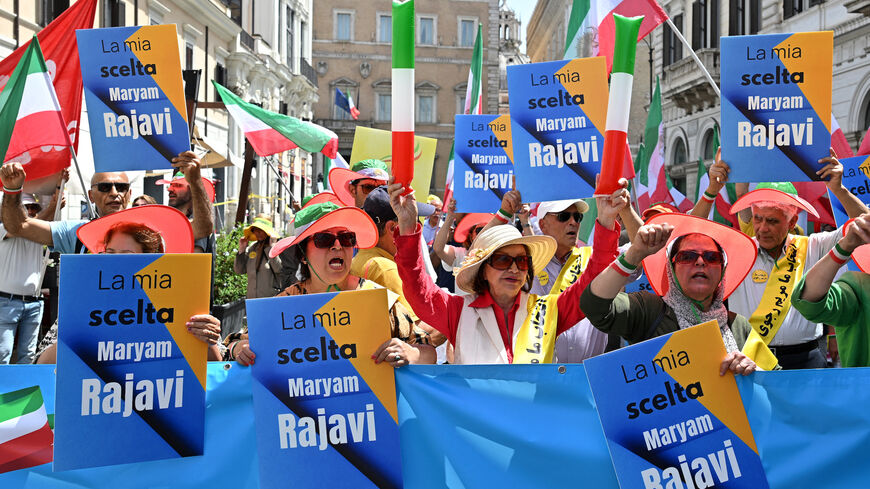The Italian ambassador in Tehran, Giuseppe Perrone, was summoned by Iran's Foreign Ministry late Wednesday, to object to Rome hosting earlier in the week Mujahedeen-e-Khalq (MEK) leader.
Italy's Senate Foreign Relations Committee earlier this week hosted MEK’s Maryam Rajavi, which Tehran has long designated as a terrorist entity.
According to a readout on its website, the Iranian Foreign Ministry told the Italian envoy that Rajavi was a "terrorist criminal," whose hosting by Italian senators was a "clear example of sponsorship for terrorism," which "Iran will not tolerate in any fashion."
MEK was among a long list of political forces that worked together to bring down the Iranian monarchy in the 1979 Islamic Revolution. The clerical order that came to power, however, began purging the group only a few months into the revolution. The ensuing conflict saw the Islamic Republic executing MEK members en masse, while the group engaged in an assassination campaign targeting high-profile figures within the ruling theocracy. The organization thus sought exile in neighboring Iraq and later in Albania to continue the escalating battle.
At the Tehran summoning, the Iranian Foreign Ministry warned Italian authorities that "sponsoring terrorism" could damage bilateral ties and called on them not to turn their country into a "haven for terrorists."
Iran has frequently been engaged in rows with European states over their asylum for MEK members and granting permission for their events and conventions. Yet only last month, the Islamic Republic celebrated some rare triumph after Albanian police violently raided MEK headquarters for an investigation into the group's "breach" of its exile conditions.
Despite holding no diplomatic ties with Tirana, Tehran came out with an expression of "gratitude" to the Albanian authorities.
And a few days later, the Iranian Intelligence Ministry issued a statement that laid out its wider strategy against MEK, as it vowed to "hunt down" the group's members "in overseas operations" until they are "entirely uprooted."
The Iranian Intelligence Ministry did not elaborate on the nature of such operations, but the Islamic Republic has over the past four decades been implicated in gunning down exiled dissidents on foreign soil or luring them into visits to neighboring countries where they have been kidnapped and transferred to Iran before being sent to the gallows.








